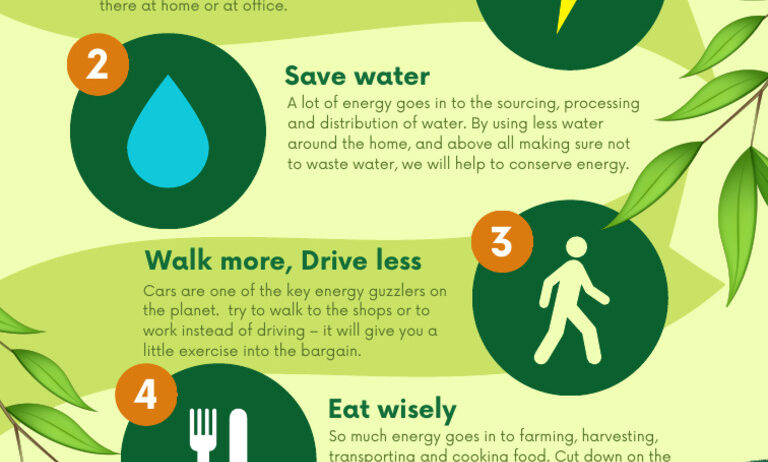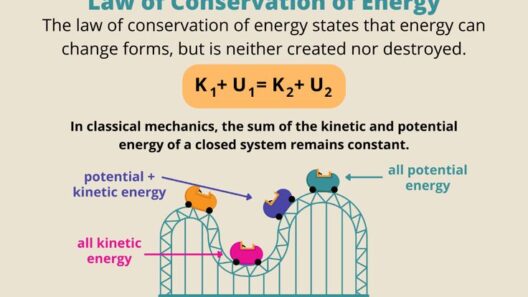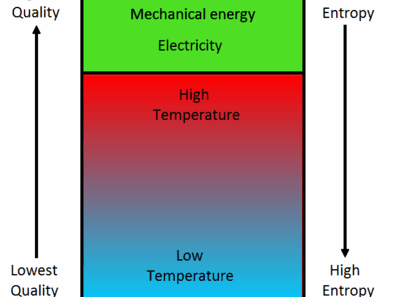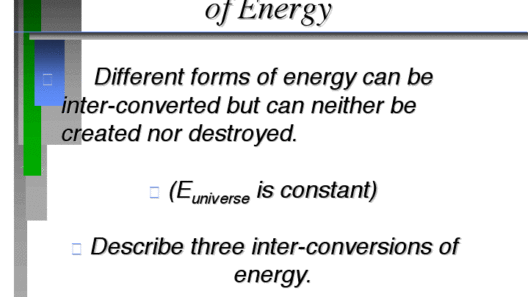In today’s rapidly industrializing world, the urgency of conserving energy has transcended mere convenience. It is now a fundamental necessity for promoting sustainability and safeguarding the environment. A myriad of strategies can be employed to optimize energy use, but we will focus on three pivotal and actionable methods that promise significant impact on both personal lifestyles and the ecosystem at large.
First and foremost, one of the most effective ways to conserve energy is by enhancing the efficiency of our homes. Retrofit your living space with energy-efficient appliances and fixtures. This does not merely entail replacing old devices with new ones; it is about adopting an enlightened approach to energy consumption. When selecting appliances, consider those bearing the ENERGY STAR label. These products are designed to use less energy without sacrificing performance. For instance, upgrading to LED lighting is a simple yet profoundly effective choice. Unlike incandescent bulbs, LEDs consume up to 75% less energy and last significantly longer. As you transition your home into an energy-efficient oasis, contemplate installing smart thermostats that can adaptively manage heating and cooling, further trimming excessive energy expenditure.
In conjunction with enhancing energy efficiency indoors, we must also reconsider how we manage our energy consumption routines. Engaging in energy-conscious habits is a swift method to effectuate change. Start by performing a routine energy audit—this entails diligently noting all the areas where energy wastage occurs. It could be as simple as switching off lights when leaving a room or unplugging devices that draw phantom energy when not in use. A striking statistic reveals that approximately 10% of your energy bill could derive from these energy vampires. By utilizing power strips that can be easily switched on and off, you can fortify your efforts in combating this silent foe. Here lies the essence of energy conservation: awareness leads to action, which culminates in environmentally responsible behavior.
Moreover, before settling into the comfort of modern conveniences, consider the habit of adjusting your thermostat. In winter months, lowering the thermostat by even a degree or two can lead to substantial savings on heating bills, while in summer, a slight increase can lessen air conditioning loads. The cumulative effect of even minor adjustments can herald a considerable reduction in energy use and, consequently, greenhouse gas emissions. It also fosters a mindset where one becomes attuned to the inherent balance of energy consumption and conservation. Simple acts of vigilance can transform everyday living into a more sustainable lifestyle.
Secondly, the realm of transportation presents a compelling opportunity for energy conservation. Trimming down vehicular energy use can yield remarkable dividends not just for the individual, but society as a whole. To initiate assistance towards a greener planet, consider alternative modes of transportation. Public transit, biking, and walking are all excellent ways to decrease greenhouse gas emissions. Carpooling or participating in ride-share programs can also significantly diminish the carbon footprint associated with daily commuting. The reality is that transportation alone accounts for nearly 29% of greenhouse gas emissions in the United States. By consciously opting for greener transportation choices, individuals are not just conserving energy; they are also taking tangible steps towards reducing urban congestion and pollution.
Moreover, if driving is a requirement, contemplate investing in a fuel-efficient vehicle or even an electric or hybrid model. Companies are increasingly manufacturing eco-friendly cars that offer remarkable fuel economy. Electric vehicles, for instance, produce zero tailpipe emissions and significantly lessen dependence on fossil fuels. The transition to cleaner energy sources, such as solar power for charging, amplifies the environmental benefits. With advancements in technology, the infrastructure for electric vehicles is expanding, making it more mainstream and accessible.
Beyond individual choices, advocating for policies that promote sustainable public transport systems can be a catalyst for widespread change. Encouraging community initiatives that improve cycling infrastructure or pedestrian-friendly spaces can engender a cultural shift towards energy-conserving transportation options.
The final frontier of energy conservation resides within the food we consume. Yes, the impact of dietary choices on energy consumption is profound yet frequently overlooked. The process of food production—ranging from farming to transportation—requires substantial amounts of energy. By opting for locally sourced and seasonal foods, energy expenditure linked to food transport and refrigeration can be significantly minimized. Furthermore, incorporating plant-based meals into your diet can dramatically lessen the energy footprint associated with livestock farming. Animal agriculture is resource-intensive and contributes heavily to greenhouse gas emissions. By embracing a more plant-centered diet, you not only conserve energy but also promote health and sustainability.
Education and advocacy play crucial roles in changing perceptions about energy consumption. Encourage others within your community to adopt these energy-conscious habits. Share insights about the benefits of sustainable living and the impact they can have as individuals collectively partake in the effort to conserve energy. Small actions, when multiplied across a population, can generate monumental shifts towards a greener future.
To encapsulate, the journey towards energy conservation is both a personal responsibility and a collective mission. By enhancing energy efficiency in homes, shifting transportation habits, and making mindful dietary choices, individuals can work towards a sustainable lifestyle that respects our limited resources. The transition may demand an initial commitment, but the resulting benefits reach far beyond individual savings; they ripple through communities and ecosystems, diminishing the burden on our planet. Start today, and ignite a movement that champions conservation and environmental stewardship one small victory at a time.








